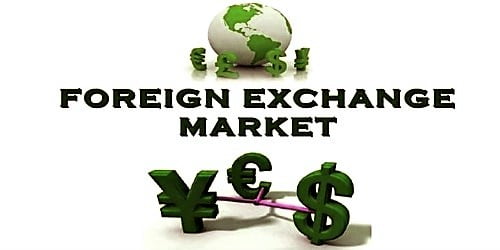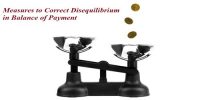The foreign exchange market is a global worldwide decentralized over the counter financial market for trading currencies. Financial centers around the world function as anchors of trading between a wide range of different types of buyers and sellers around the clock, with the exception of weekends. The foreign exchange market determines the relative values of different currencies.
The foreign exchange market is an over-the-counter (OTC) marketplace that determines the exchange rate for global currencies. These markets are made up of banks, forex dealers, commercial companies, central banks, investment management firms, hedge funds, retail forex dealers and investors. It is a market where the buyers and sellers are involved in the sale and purchase of foreign currencies.
A foreign exchange rate is measured typically as the number of a given currency that exchanges for a unit of some other currency – R. M. Stem.
Exchange rate indicates the purchasing power of foreign currency or gold by their domestic currency.
Types of Foreign Exchange Market
Broadly, the foreign exchange market is classified into two categories on the basis of the nature of transactions. These are:
Spot Market: A spot market is the instant delivery market, representing that segment of the foreign exchange market wherein the transactions (sale and purchase) of currency are settled within two days of the deal. That is, when the seller and buyer close their deal for currency within two days of the deal, is called Spot Transaction. Spot market transactions are valid for 48 hours and the price refers to current transactions.
Forward Market: The forward exchange market refers to the transactions – sale and purchase of foreign exchange at some specified date in the future, generally after 90 days of the deal. In many instances, this type of market involves a currency swap, where two entities swap currency for an agreed-upon amount of time, and then return the currency at the end of the contract.
The foreign exchange market has the following participants, such as –
(A) Commercial customers –
- Engage in foreign exchange transaction as a part of their normal commercial activities such as export and import etc.
- They are the bottom of the FX market and actual buyers and sellers of currencies.
- Central banks are the official players in this market, and each country has a central bank to manage its money supply.
(B) Commercial banks –
- The second and most important organs of the FX market.
- They work as the clearinghouse.
- They buy foreign currency from bankers and sell to the buyers.
(C) Central banks – They work as the lender of the final option and the custodian of foreign exchange of the country. The central bank has the authority to regulate and organize the foreign exchange market so as to assure that it works in a methodical manner.
- Are the apex bodies in the organization of the foreign exchange market?
- They have the power to control and regulate the foreign exchange market.
(D) Non-Bank foreign exchange companies –
- Non – bank foreign exchange companies offer currency exchange and international payments to private individuals and companies.
(E) Money transfer/remittance companies –
Money transfer companies perform high volume low-value transfers generally by economic migrants back to their home country. The largest and best-known provider is Western Union with 345,000 agents globally followed by UAE exchange.















